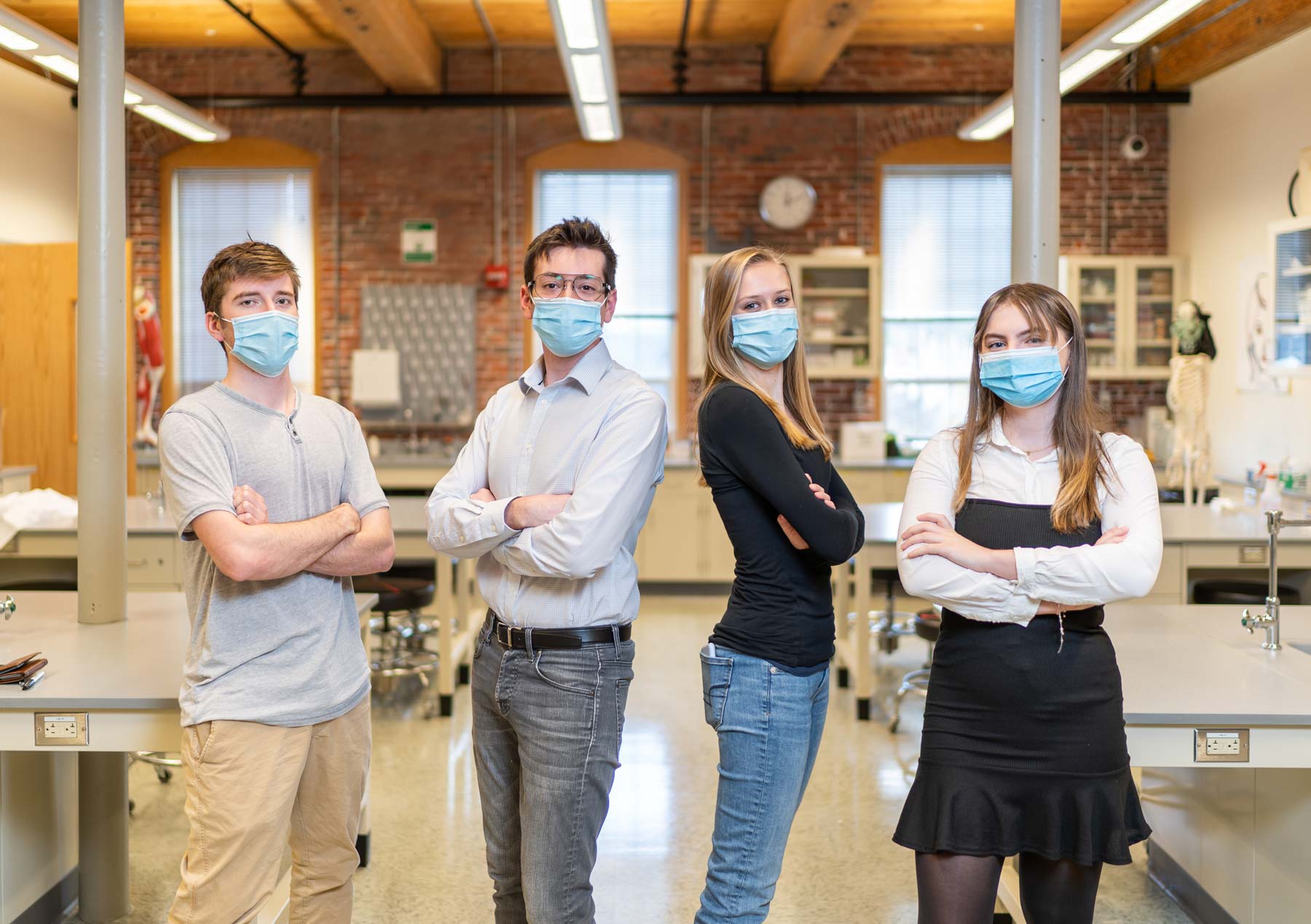
ntibiotic resistance is one of the top health crises the world will face in the coming decades. Among the bright minds bringing their intellectual muscle to bear on the issue is a team of students from UNH Manchester who developed an experiment to examine how soil bacteria evolve or mutate in space relative to what is observed on Earth. Documented differences could affect the production of future antibiotic compounds, with potential for lasting contributions to both space exploration and the treatment of antibiotic-resistant disease.
The project, Novel Methods of Antibiotic Discovery in Space (NoMADS), is one of five student proposals recently selected by NASA to be sent to the International Space Station (ISS) as part of its Student Payload Opportunity with Citizen Science (SPOCS) program, in celebration of 20 years of continuous human presence on the ISS. Led by biology lecturer Suzanne Cooke ’94, ’04G, the core team includes Sydney Rollins ’20, ’22G, Raymond Miller ’21, Irma Vrevic ’23 and Thomas Gerton ’23. Miller and Rollins co-lead the NoMADS project, which stemmed from research they conducted in Cooke’s Small Microbial World course.
“Learning how Earth bacteria change in space not only helps prepare for long-term space exploration, but it could also lead to the discovery of novel chemicals that could be used as new antibiotics,” says Miller, a pre-M.D./Ph.D. student in the biological sciences program. “It could lead to changes in space travel and help deal with the issue of antibiotic resistance in space.”
NoMADS was selected for space travel after the group submitted a proposal and presented to NASA, Nanoracks and DreamUp. The team will send New Hampshire soil samples containing unknown bacteria to the ISS for approximately 30 to 45 days without any interaction or observation from the station crew and, upon return, will assess them for antibiotic production in comparison with control samples incubated on Earth.
“It’s actually a really simple project, which is I think why it got accepted,” Cooke says. “There’s not a lot of ways that it can go wrong.”
Simple perhaps, but Cooke’s students will 3D print their own equipment and use cutting-edge technology called ichip, which can culture countless more soil bacteria than is possible in the traditional lab setting. One of the most abundant sources of bacteria on Earth, soil could be key in the fight against antibiotic resistance.
“Antibiotic resistance is a growing problem our generation is facing,” says Gerton, a biotechnology major and Millyard Scholar. “This project has the potential to help source novel antibiotics to mitigate the crisis, which will only get more severe without new discoveries.”
In addition to research, outreach is a key component of NASA’s SPOCS program. To that end, the Manchester team will involve New Hampshire middle schoolers as citizen scientists on the NoMADS experiment, allowing kids to contribute to the project through hands-on STEM activities.
The launch is expected to go off early next year. UNH Manchester students plan to travel to the Kennedy Space Center to watch it live.